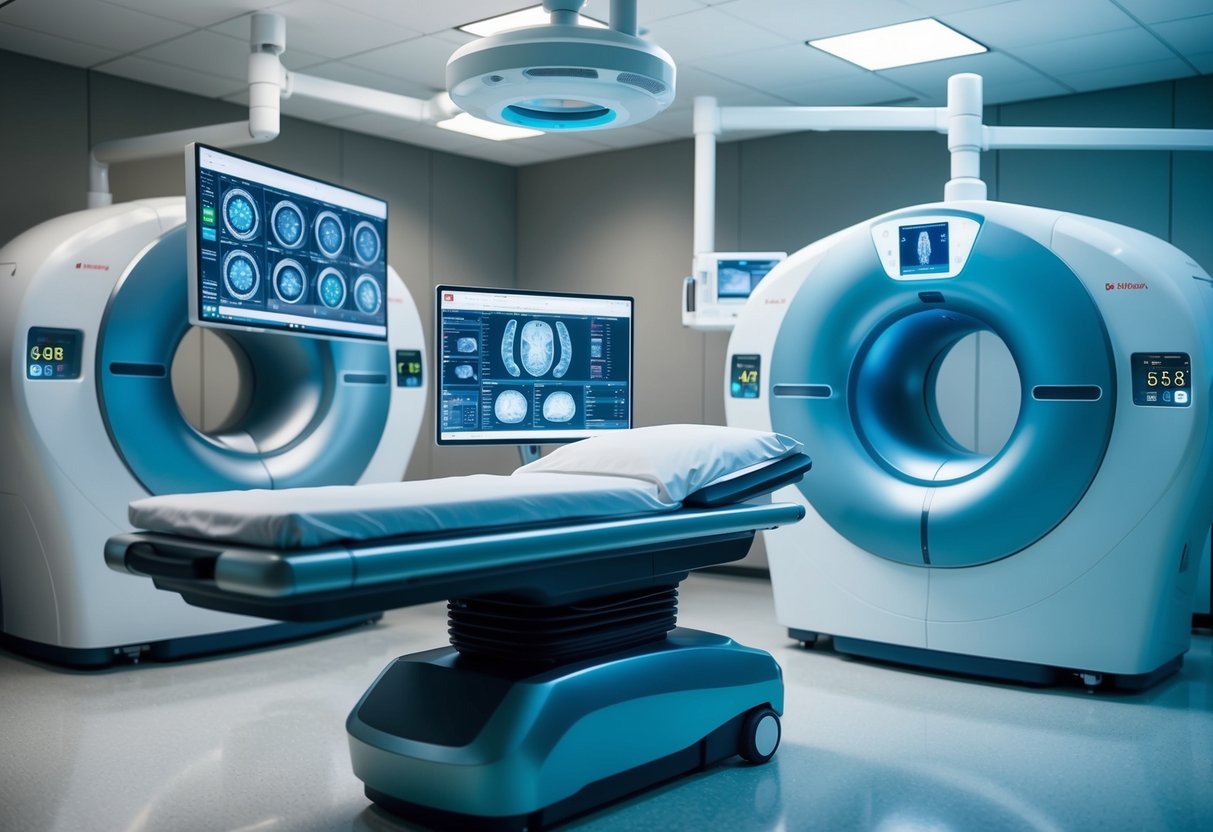
Personalized Medicine and AI
Personalized medicine is transforming how treatments are designed for individual patients. Integrating AI into this field facilitates precise treatment planning and supports patient-centered care systems.
Personalized Treatment Planning
AI technology enhances personalized treatment planning by analyzing vast datasets from numerous patients to identify patterns and predict responses. It enables healthcare providers to tailor treatments based on each patient’s genetic makeup and medical history. This approach increases the effectiveness of interventions, potentially reducing adverse effects.
By incorporating machine learning algorithms, AI can anticipate how different treatment options might perform for specific individuals. This level of customization aims to maximize patient outcomes by ensuring that recommended treatments are both effective and compatible with individual health profiles.
Patient-Centered AI Systems
Patient-centered AI systems focus on enhancing the patient experience by integrating machine intelligence into everyday healthcare practices. These systems provide real-time insights and predictions about patient health, allowing clinicians to make informed decisions.
This integration supports ongoing monitoring and adjustment of treatment strategies based on the most current data, aiming to improve the overall health journey. Such AI systems are designed to keep the patient’s needs and conditions at the forefront, ensuring that care delivery continually adapts to provide the best possible outcomes.
Integration of AI in Clinical Settings
The integration of artificial intelligence in clinical environments enhances decision support and impacts healthcare delivery. AI assists clinicians in creating precise treatment plans, directly affecting patient care dynamics and professional workflows.
AI in Decision Support and Treatment Plan
In clinical settings, AI plays a pivotal role in enhancing decision support systems. By analyzing large datasets quickly, AI helps clinicians develop accurate diagnosis and tailored treatment plans. This technology evaluates patient history, medical imaging, and laboratory tests to support medical decisions. Radiologists and healthcare providers can offer more personalized care with increased confidence and accuracy. The integration reduces human error, leading to more consistent patient outcomes and effective treatment strategies.
Impact on Healthcare Professionals and Providers
AI transforms the workflow of healthcare professionals by streamlining routine tasks. This allows more time for patient interaction and complex decision-making. For some providers, AI tools may introduce challenges, such as the need for additional training. However, AI significantly aids in managing the increasing demand on healthcare systems. By sharing routine analytical tasks, professionals can focus on more critical aspects of patient care, enhancing the overall healthcare experience. This collaboration between technology and clinicians fosters an environment of efficiency and improved patient satisfaction.
AI in Diagnostic and Interventional Procedures
AI is transforming diagnostic and interventional procedures by improving precision in image-guided interventions and enhancing robotic assistance in surgical settings. These technologies enable more effective, minimally invasive techniques, enhancing outcomes for patients.
Enhancing Image-Guided Interventions
In the field of image-guided interventions, AI plays a crucial role in improving the clarity and precision of medical imaging. Algorithms can identify anatomical landmarks and detect abnormalities with high accuracy, assisting clinicians in making informed decisions. AI-driven systems provide real-time analysis, allowing healthcare professionals to perform procedures like biopsies with greater accuracy.
Moreover, AI optimizes the planning and execution of interventions. By analyzing large datasets, AI tools predict potential complications and suggest personalized approaches based on patient-specific parameters. This level of individualization reduces procedure times and enhances the safety and effectiveness of treatments.
AI in Surgical Procedures and Robotics
AI’s integration into surgical procedures has led to significant advancements in precision and efficiency. Robotic systems, enhanced by AI, assist surgeons in executing complex tasks with improved dexterity and control. This is particularly beneficial in minimally invasive surgeries, where precision is paramount.
AI algorithms process data from various sources to provide real-time insights, enhancing surgical outcomes. By recognizing patterns and predicting potential challenges, AI aids in reducing human error and improving patient safety. The adoption of robotics in surgery is continually evolving, driven by AI’s capability to analyze and adapt during procedures, pushing the boundaries of current medical practices.